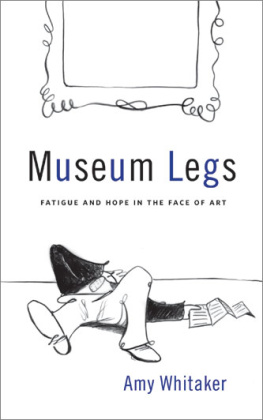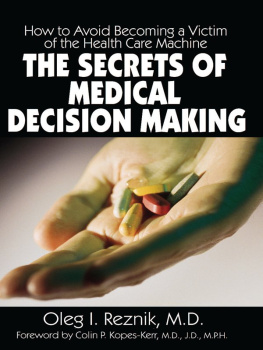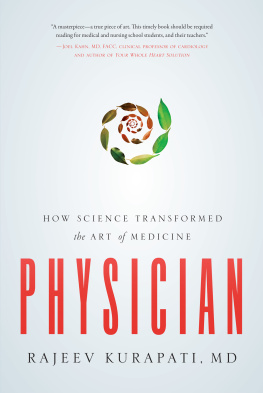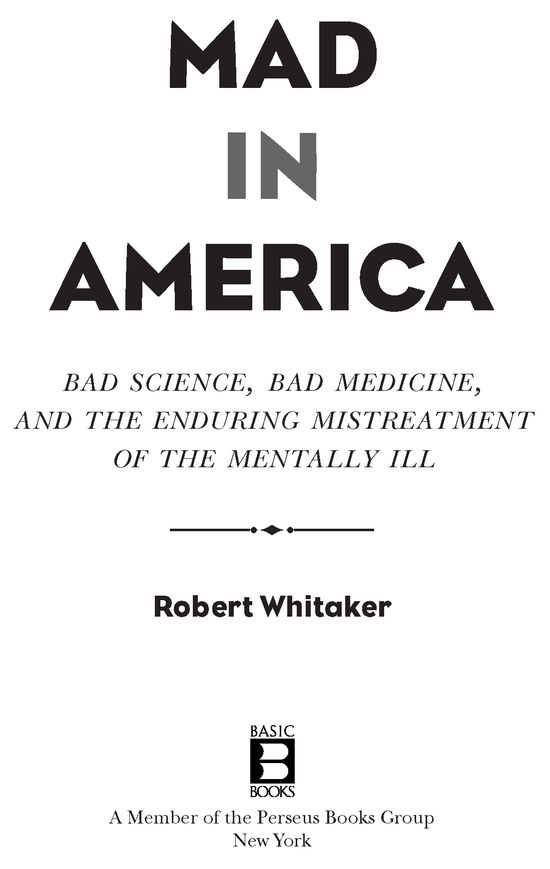Table of Contents
Robert Whitakers articles on the mentally ill and the drug industry have won several awards, including the George Polk award for medical writing, and the National Association of Science Writers award for best magazine article. A series he co-wrote for The Boston Globe was named a finalist for the Pulitzer Prize in 1998. Whitaker lives in Cambridge, Massachusetts.
Praise forMad in America
An articulate dissection of mad medicine.... A horrifying history.
Booklist (starred review)
This books lessons about the medical dangers of greed, ego and sham are universal and couldnt be more timely.... People should read this excellent book.
Baltimore Sun
An insightful and haunting tale.
National Journal
A powerfully disturbing reading experience.... Whitakers book does a singular service in reminding us that authority of all sortsmedical, state, or the unholy combination of both that has frequently defined psychiatryis always in danger of shifting into tyranny.
Reason
A disturbing book; it should be carefully studied by those who care for, or about, the mentally ill.
Psychology Today
The most important bit of mental health muckraking since Deutschs The Shame of the States was published in 1948.
In These Times
Robert Whitaker has written a fascinating and provocative booka history of the way Americans understand schizophrenia and attempt to treat it, each twist and turn of which is marked by the hubris that at last we have the answer. And as he makes clear, we still do not, nor are we anywhere near as humane in caring for the schizophrenics in our midst as we think we are.
Marcia Angell, M.D., Harvard Medical School, former Editor-in-Chief, New England Journal of Medicine
Serious and well documented.
American Scientist
Mad in America is a dose of truth therapy for a seriously disturbed mental health system.... This courageous book made me want to stand up and cheer.
David Oaks, Director, Support Coalition International
Controversial... [Whitaker] marshals a surprising amount of evidence.
Chicago Tribune
[Mad in America] is mandatory reading.
Philadelphia Inquirer
Investigative journalism at its scholarly, perceptive, and explanatory best. Mad in America presents an insightful, courageous expos of how madness went from out of mind, out of sight to a source of massive corporate profits.
Loren R. Mosher, M.D., Clinical Professor of Psychiatry,
University of California at San Diego, and
former Chief, Center for Studies of Schizophrenia,
National Institute of Mental Health
An extraordinarily well-researched work on a part of our history that most Americans dont know the first thing about. A simply fascinating read, whether you are involved in the American mental health system or not.
Margot Kidder
Mad in America is a bleak look at the history of mental health treatment. It calls for answers and accountability for practices that can no longer be ignored.
The Common Review
This is such an important book that every psychiatrist should be compelled to read at least the preface, every year. And everyone else should then insist on them describing in writing, every year, what theyre doing about it.
New Scientist
This courageous and compelling book succeeds as both a history of our attitudes toward mental illness and a manifesto for changing them.
Amazon.com
To my parents
Grateful acknowledgment is made for permission to reprint from: Walter Freeman and James Watts, Psychosurgery, second edition, 1950. Courtesy of Charles C. Thomas, Publisher, Ltd., Springfield Illinois.
We are still mad about the mad. We still dont understand them and that lack of understanding makes us mean and arrogant, and makes us mislead ourselves, and so we hurt them.
David Cohen
PREFACE TO THE REVISED EDITION
TEN YEARS AGO, when I was researching and writing Mad in America, I had little thought that this subjectbroadly speaking, psychiatry and its medical treatments for mental disordersing, psychiatry and its medical treatments for mental disorderswould become an enduring passion of mine. I wrote Mad in America in order to investigate a fairly straightforward medical question (more on that in a moment), and I thought that would be the end of it. I then spent a number of years writing two history books on topics far from this field, and yet, even as I worked on those books, I continued to revisit this subject. I wrote several articles for academic journals, and then finally I wrote another book on this general topic, Anatomy of an Epidemic: Magic Bullets, Psychiatric Drugs, and the Astonishing Rise of Mental Illness, which was published in the spring of 2010. You could say that I became a bit obsessed by the subject.
Heres the short story of how that obsession came about.
As I wrote in the first edition of Mad in America, my interest in this subject occurred in a very accidental way. In the summer of 1998 I stumbled onto an unusual line of psychiatric research, which I reported on for the Boston Globe. In order to study the biology of schizophrenia, American scientists were giving the mentally ill chemical agentsamphetamines, ketamine, and methylphenidateexpected to heighten their psychosis. That seemed an odd thing to do, particularly since some of the people recruited into the experiments had come stumbling into emergency rooms seeking help. Then, while reporting on that story, I bumped into two studies in the medical literature that really confused me. In a 1994 article, Harvard Medical School researchers had reported that outcomes for schizophrenia patients had worsened during the past twenty years.
Now, before I learned of those outcome studies, here is what I knew was true: Antipsychotic medications were like insulin for diabetes, and these drugs had dramatically improved the lives of people diagnosed with schizophrenia. Yet, the studies by the Harvard researchers and by the World Health Organization belied that story of progress. And so I wondered: Why had schizophrenia outcomes worsened in the past twenty years? How could it be that long-term outcomes were no better today than in 1900? And why did those diagnosed with schizophrenia fare so much better in India and Nigeria than in the United States? Or, to put it another way: Why should living in a country with rich resources, and with advanced medical treatments for disorders of every kind, be so toxic to those who are severely mentally ill?
Those questions were what motivated me to write Mad in America. As I researched the subject, I quickly realized that the past could serve as a foil for understanding the present. This history begins with the founding of the first hospital in the colonies by Pennsylvania Quakers in 1751, and from there one can trace a path, however winding and twisted, to the poor outcomes of today. It also is a history that contains one surprise after another. For instance, we think of the 1800s as a time when the insane were routinely chained up and neglected, and yet in the early nineteenth century there arose a form of humanitarian care that has never been equaled since. Go forward one hundred years, however, and the path detours into one of the darkest chapters in Americas history, and there you can find the seed for todays failure.



















